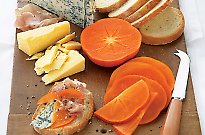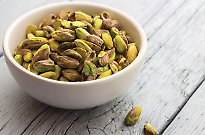
Food as medicine for a healthy heart
Food as medicine for a healthy heart

To have good heart health we need to start by looking at our abundant plant kingdom. Basically, we want our blood to be running smoothly through our arteries with nothing blocking this natural process. So, what could possibly interfere? Well, plaques (atherosclerosis), hardening of the arteries (arteriosclerosis) and high blood pressure. There is new insight that heart health has not so much to do with cholesterol as it does blood pressure and blood sugar. Interesting, isn’t it? How many of us have problems keeping our blood sugar balanced? Diabetes is on the incline and sugar and carb cravings seem now to be the norm.
So how does hardening of our arteries and plaques occur?
A diet high in saturated fat from animal products is the most common reason. (Smoking gives saturated fat a run for its money, however.) Imagine pouring oil down your kitchen sink. You could clean your drain out with detergent (pharmaceutical drugs), but then our waterways or your garden, will have to deal with the toxic residue in the chemicals used. And after a while it won’t work because the oil has built up so you have to use something harsher (more drugs), and so the cycle continues, and yet the condition worsens. Why not stop pouring the oil down the drain?
Western medicine thought it’d be a good idea to thin the blood to help it get its way around the plaques with warfarin and aspirin. I often wondered why we don’t just thin thick blood out with a natural vitamin E? And remove plaques with plant sources of omega-3s. Isn’t that simpler, cheaper, healthier and more sustainable, environmentally?
What we did instead was introduce margarine and cardiovascular drugs like the ones above. Heaven forbid we had to give up bacon fried in butter, or beef burgers. Yes, of course margarine doesn’t contain those dreaded saturated fats clogging our arteries, but worse – it was made from trans-fatty acids/hydrogenated fats. We know these fats are carcinogenic – among the other very scary things about them – so scary, in fact, that they have been banned in some countries.
So, to prevent cardiovascular disease, this is what you need to do nutritionally:
Avoid or at least decrease your intake of saturated fats from animal products. These are things like red meat, ice cream, butter, cows milk and its products (including low fat products) and yellow cheese. Also avoid trans/hydrogenated fats, (it’s in so many things check your label before you buy anything).
Coconut
First up is coconut, which absolutely deserves its title as ‘The Tree Of Life’. For too long we were told to avoid this plant as it contained saturated fat. We thought all saturated fat was bad, but in reality this is so far from the truth. Coconut has been proven to be of great benefit to cardiovascular health, and aids weight loss in fact – another factor contributing to good heart health.
Cacao
No, not dairy milk chocolate, but raw cacao powder. In Latin it translates to ‘food of the gods’. We recently have been learning of its wonderful affect on the cardiovascular system, especially for lowering blood pressure. It’s also a great source of fibre, so it’s wonderful for keeping your blood sugar balanced. It also contains super high levels of magnesium, antioxidants, calcium, beta-carotene and omega 3 fatty acids. All of which we know are beneficial to our cardio system.
Nuts
These are high in Vitamin E, with hazelnuts and almonds topping the chart and cashews for magnesium and walnuts for omega 3 fatty acids, leading the pack. Why not eat a handful of mixed nuts daily? Make them organic, however, as most pesticides are hydrophobic (water fearing), so are absorbed in the fat of the nut, which makes up 50 to 75 per cent of nuts.
Seaweeds
Fish doesn’t actually contain omega 3 oils – it’s the seaweed it eats. Why not go straight to the source, skip the middleman, or the fish in this case? Include nori, wakame, dulse and arame. They also contain a good deal of heart-healthy calcium and magnesium.
Red wine
High in antioxidants, which we know is heart-friendly, and not just because of the resveratrol levels. Like all things, be moderate with your intake. One to two glasses a night with a couple of days off in between, is recommended. Try to purchase organic wine so you’re not consuming the sulphur dioxide wine makers use to preserve the colour and extend the shelf life of their product. This toxic chemical can lead to upper respiratory disease, migraines, hives and other allergic reactions.
Omega 3
We have been told about the benefits of this fat for a while now. Yes it’s important but does it need to come from salmon and tuna? No! Salmon is only available farmed in Australia so is fed toxic chemicals, and tuna are declining in numbers at a scary rate and contain high levels of heavy metals like mercury. Not to fear, as our glorious plant kingdom has got this covered. Welcome into your pantry – walnuts, flax, hemp and chia seeds. These foods contain ALA’s (alpha-linoleic acid), which our body converts into EPA’s and DHA (omega 3’s).
Soybeans
Can lower triglycerides (bad fats), which help prevent cardiovascular disease and keep your heart strong and healthy. The best way to include this legume into your diet is by eating organic tempeh. Organic because soy is one of the crops that uses GMO technology – and tempeh not tofu – because it is fermented and is therefore much easier to digest. Tofu is fine sometimes, but tempeh is so much better because of the fermentation it undergoes and contains B12 for easier digestion. Soybeans are also a great source of fibre, so they help to keep your blood sugar balanced.
Berries and grapes
The power is in the skin and the seeds. You can buy grape juice, which is very yummy and super sweet. Best if you dilute it or add it to your smoothie for some sweetness. Add some blueberries, cranberries, strawberries and all other berries for a nice hit of antioxidants, beta-carotene and other heart-friendly nutrients.
Browse more food and diet tips.















